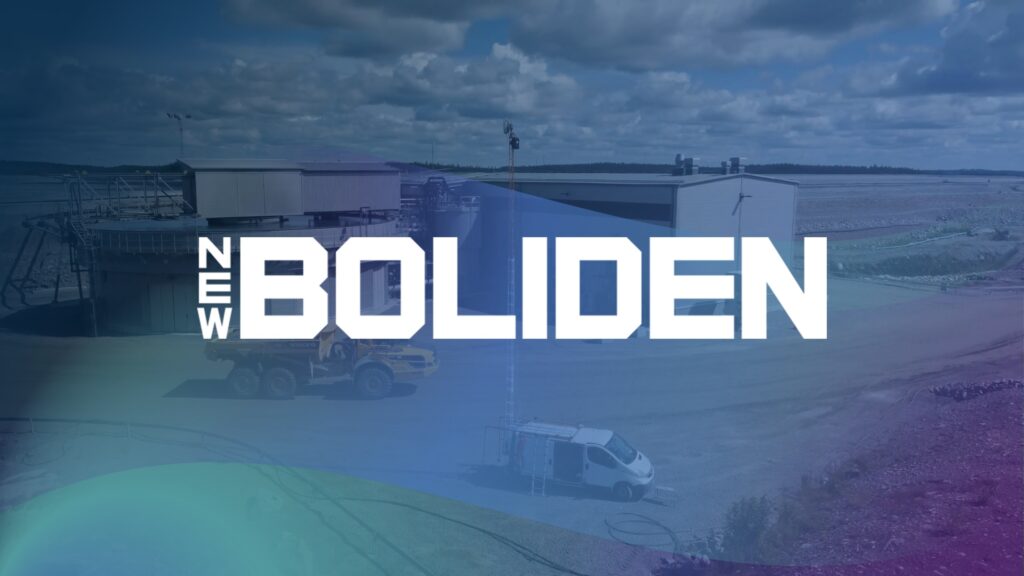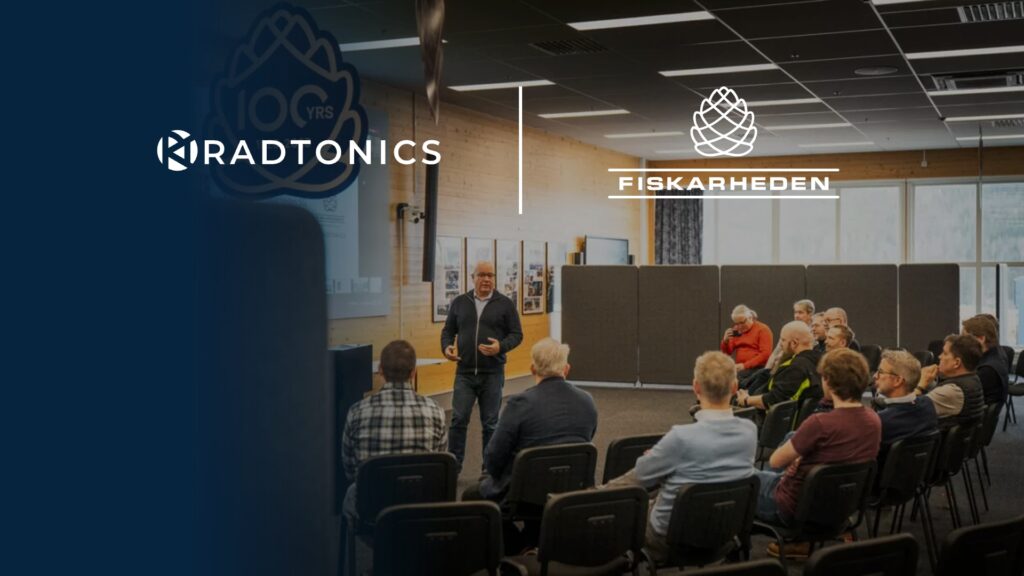Industrial 5G network from Radtonics increases productivity at FiskarhedensTrävaru
With a strong focus on digitalization, Fiskarhedens Trävaru is one of the first companies in Sweden to introduce a private 5G network. By replacing the sawmill’s Wi-Fi network with a private 5G network from Radtonics, the company has taken necessary steps that have resulted in fewer interruptions, increased productivity and employee satisfaction.
Fiskarhedens Trävaru AB is one of Sweden’s most modern and digitalized sawmills. Located in Dalarna, Fiskarhedens Trävaru has for over 100 years purchased quality timber from its local area and processed it into sawn timber. Today, the sawmill also manufactures wood components and windows. As the largest private sawmill in Sweden, Fiskarhedens Trävaru has an annual production of approximately 400,000 cubic meters of sawn timber and a turnover of SEK 1.4 billion in 2022.
Big focus on digitalization at Fiskarhedens
Digitalization is essential for the business to deliver the highest quality processed products, work with traceability and safety, and conduct efficient operations in the sawmill. To handle data and communication, the company has a solid fiber and copper network, which, until a few years ago, was supplemented with a wireless Wi-Fi network. The company has long had issues with the Wi-Fi network, so alternative solutions were evaluated, including 5G.
The CIO at Fiskarhedens Trävaru, Jugås Sven-Erik Andersson, explains how central digitalization is to production.
“Every log that arrives at the sawmill is 3D scanned to get exact information about the quality, such as knots and the density of the timber. In this way, we can assess what sawing method we should use for that particular log and what final product we can produce – it is a vital planning tool.”
Jugås says there are about 3.5 million logs annually, with each log generating data equivalent to a Netflix movie. In other words, large amounts of data are handled in Fiskarheden’s sawmill annually.
Wi-Fi is not enough robust or secure
The challenges with the Wi-Fi network have been to reach all parts of the business with complete security and stability without disruptions and interruptions.
“Our operations happen over a large area where we depend on wireless connectivity. As an illustration, the forklifts must receive information about where to place the timber when it arrives at the sawmill or during the processing process. If they get the wrong data, there is a risk we need to stop production – it costs us SEK 65,000 per occasion,” says Jugås.
In addition, incorrect information or slow connection irritates the sawmill’s employees, not least the forklift drivers, who then don’t have complete control over where they should drop off the timber in the plant.
First to introduce a private 5G network
To help overcome the Wi-Fi problem and to create a future-proof foundation for its digitalization, the company was early to introduce its own private 5G network throughout the sawmill.
“We have had 5G on the agenda for a long time, so when we got the opportunity to apply for a license, we did it immediately. In connection with this, I read about Radtonics, the first to introduce mobile private 5G networks. One thing led to another, and Radtonics turned out to be a very experienced and competent team with an excellent and customized mobile 5G network for the industry.”
Together with Radtonics, Fiskarhedens Trävaru identified its needs, and based on this, Radtonics introduced the industrial 5G network.
Fewer interruptions, better control, and more satisfied employees with 5G
Initially, the focus has been on building the 5G network in outside parts of the facility, in the production environment that couldn’t be reached by the fiber or copper network and which previously relied on Wi-Fi.
“Thanks to 5G, we can control real-time transportation on our industrial site. The truck drivers know exactly where to pick up or drop off products, and production is uninterrupted, which of course has saved us some money and increased efficiency – in addition, the truck drivers are more satisfied now, which is a critical aspect,” says a satisfied Jugås.
The 5G network has also generally improved communication in the area. For example, when a load of new logs arrives, it is reported to a registration shed that checks the load and matches it with an external computer system. With the help of the 5G network, this control is much smoother and uninterrupted, resulting in increased safety. Furthermore, the 5G network has enabled Fiskarhedens Trävaru to introduce a new system for unloading sawn timber, improving efficiency.
Evaluating further expansion of 5G to control systems and sawmill machinery
Together with Radtonics, Fiskarhedens Trävaru is now looking at how the 5G network should be further developed and introduced as a communication channel in more parts of the business.
“For us, it is always about speeding up production, minimizing interruptions and errors, and maximizing data use. We are now looking at connecting the control systems and saw machines to the 5G network,” says Jugås.
Fiskarhedens Trävaru is celebrating 100 years this year, and Jugås Sven Erik Andersson notes that the industry has developed enormously over the years.
“Today, we are one of the most digitalized sawmills, and we will continue to take advantage of digitalization opportunities. In this context, the continued expansion of the 5G network is a priority.“



